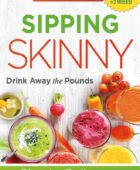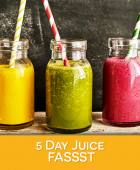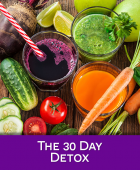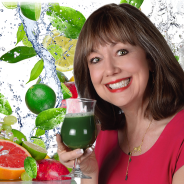How to Prevent a Summer Cold
Although colds are the most prevalent in the winter, you can catch one in the summer too.
Summer colds usually happen between June and October, and the symptoms are very similar to a winter cold— headache, runny nose, scratchy and sore throat, fever. and body aches.
Summer colds are typically caused by an enterovirus. Those are viruses that live in the gut. We may get a cold in the summer because we let our guard down a little. The weather is beautiful and we’re having fun. We don’t expect to get a cold at this time of year. So we may slack off with our immune-supporting supplements. We may eat things we don’t normally eat because we’re on vacation. And because we’re not at home, we may not get juice.
It’s time to stay on track. Here’s what you can do.
Take the following supplements:
1. NAC N-Acetyl Cysteine
(NAC) has shown the ability to block the attachment of damaging proteins (like the ones with the spikes) to receptor sites and other viruses. If they can’t attach, the damage they can do is greatly reduced. N-acetylcysteine (NAC) has been used in clinical practice to treat critically ill septic patients, and more recently for COVID-19 patients. NAC has antioxidant, anti-inflammatory, and immune-modulating characteristics that may prove beneficial in the treatment and prevention of SARS-Cov-2.” (https://www.ncbi.nlm.nih.gov/pmc/articles/PMC7649937/)
3. Zinc
Zinc controls the immune system. If the immune system can’t stop a virus from replicating, it goes into overdrive and ramps up inflammation, especially in the lungs. This is what causes viral pneumonia. One of the fierce reactions to Covid-19 is an over-reactive immune response causing severe respiratory infection. A study from Ohio State University shows that zinc “helps control infections by gently tapping the brakes on the immune response in a way that prevents out-of-control inflammation that can be damaging and even deadly.” https://www.sciencedaily.com/releases/2013/02/130207131344.htm Ginger is rich in zinc. Add it to all your juices.
4. Quercetin
One of the most well-studied attributes of quercetin, however, is its antiviral capacity, which has been attributed to three main mechanisms of action:
1. Inhibiting the virus’ ability to infect cells
2. Inhibiting replication of already infected cells
3. Reducing infected cells’ resistance to treatment with antiviral medication
5. Vitamin C
A scientific study reported flu and cold symptoms in the test group decreased by 85% compared with the control group after the administration of megadose Vitamin C. https://www.ncbi.nlm.nih.gov/pubmed/10543583)
A study in China found that vitamin C, which is an antioxidant, may help prevent cytokine-induced damage to the lungs. Cytokines are small proteins released by cells, which trigger inflammation and respond to infections, according to MedicineNet author William C. Shiel Jr., MD, FACP, FACR. Severe lung inflammation with COVID-19 may result in respiratory distress and even death.
The clinical trial description states that vitamin C reduces the inflammatory response, and both prevents and shortens the duration of the common cold. The description further states that insufficient vitamin C is related to an increased risk and severity of influenza infections. The team aims to see if vitamin C has similar effects against viral pneumonia associated with COVID-19. https://www.medicinenet.com/script/main/art.asp?articlekey=228745
6. Vitamin D3
Vitamin D has been shown to have a protective effect against Covid-19. Dr. JoAnn E. Manson, professor of medicine and chief of the division of preventive medicine at Harvard Medical School points out that your vitamin D status may in fact play an important role in your risk of developing COVID-19, as well as the severity of the illness. Vitamin D is important for innate immunity and boosting your immune function against viral diseases. It can lower inflammation and can be important in respiratory response to viral infection and particularly the cytokine storm associated with Covid-19. Three South-Asian studies showed people with serious COVID-19 infection are far more likely to have insufficient levels of vitamin D compared to those with mild illness.
Shelter in place indoors all the time is not protective when it comes to prevention. We need sunlight to produce vitamin D. It is also recommended that you eat vitamin D-rich foods such as fatty fish like salmon, fish oil, sunflower seeds, and eggs. But for many people, supplementation is imperative since statistics show that 42% of Americans are deficient. If you are deficient, 5,000 IU of vitamin D3 be taken daily. According to Irish researchers, “It is time for governments to strengthen recommendations for vitamin D intake and supplementation, particularly when under lock‐down.”

7. Don’t forget to juice!
It’s a key component of a healthy immune system.
These foods depress your immune system
Sugar depresses the immune system. Sugar will beat out vitamin C for entry into your white blood cells.
Unsaturated vegetable oils (safflower, sunflower, corn, soy, canola, and peanut). Unsaturated fat intake is associated with increased mortality from COVID-19, Unsaturated fats “cause injury [and] organ failure resembling COVID-19.” Very sick people who can’t eat are fed intravenously. It’s called total parenteral nutrition (TPN). Generally, this is used through a product called Intralipid, which is made out of soybean oil and sugar. When you start to understand all this stuff, it’s just mind-boggling. Doctors did an experiment after they noticed that a lot of their patients who came into the ICU and got TPN then subsequently got ARDS (Acute respiratory distress syndrome). So, they started playing with what they were feeding them, and what they discovered was this soybean oil formula increased the patient’s rate of getting ARDS. The fatality rate from ARDS is 30% to 60%. Feeding seed oils increased the rate of ARDS by seven times.” CLICK HERE









